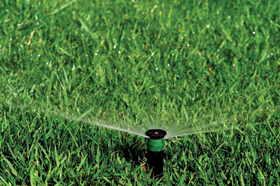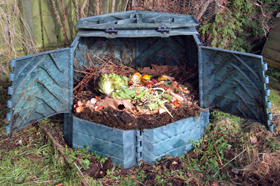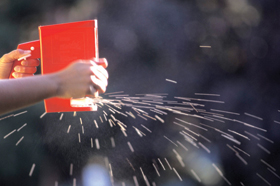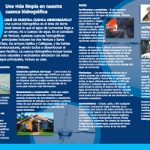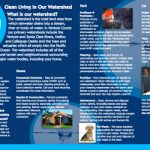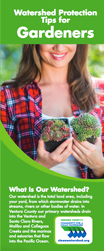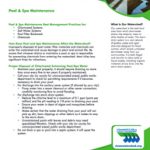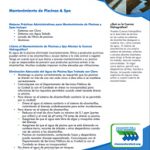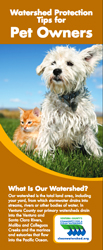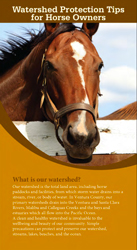Preventable pollutants are both seen and unseen materials that accumulate in our yards, driveways, gutters and streets and damage our watersheds. Even simple changes in the way we care for our homes can make a big difference in keeping our watersheds clean.
Click here for a complete list of downloadable Residential Brochures for more information on how you can protect the watershed.
- Household Chemicals – Always read labels carefully before buying household cleaning and maintenance products. Know that ingredients range in classification of level of toxicity from CAUTION, which means least toxic, to WARNING and finally, to DANGER or POISON. A symbol of a skull and cross-bones also refers to high toxicity. Avoid buying products displaying the labels representing extremely toxic ingredients.
- Natural Cleaners – Use safe, less toxic alternative cleaners such as baking soda, salt, borax, vinegar, water or elbow grease. Click here for Eco-Friendly Cleaners and Alternatives from Eco-Cycle, a nonprofit that advocates for local and global Zero Waste solutions, fostering a more regenerative, equitable, and climate-resilient future.
- Paint – Choose water-based paints instead of oil-based paints. Don’t use any paint over 15 years old since it may contain lead.
- Storage– To minimize waste and spills, use products carefully and store them in heavy duty, air-tight containers.
- Disposal of Household Chemicals – Never pour toxic paints, preservatives, brush cleaners, solvents or anything else into gutters or down the storm drains, sinks or toilets. Take all unwanted Household Hazardous Waste (HHW) to hazardous waste collection events or facilities.
To find out more tips for safeguarding the watershed around your home, click below to download our Residential Watershed Protection Tips brochure.
English Español
Runoff from gutters and other sources should be directed onto grass and gravel to slow the velocity of water running into the storm system and naturally filter the water. Lawn clippings and yard waste in ravines and ponds can become unwanted fertilizer for streams. Too much plant growth in streams can use up all the oxygen and kill fish and aquatic life. To help prevent this, you can compost your yard waste or use a mulching mower.
Use wooden decking, bricks or stones for driveways, walkways and other outdoor areas, instead of solid paving.
Irrigation – Over-irrigating creates runoff that can carry preventable pollutants into the storm drain system. Water the lawn early or late in the day and use water efficient devices. Even during the hot summer months, there is no need to water every day. Perform regular maintenance and water only as needed to minimize pollution-carrying runoff.
Sweep off instead of hosing the driveway, patio or sidewalk. Water run-off from our driveways or sidewalks carries contaminants, such as dirt, motor oil, fertilizers and animal waste, into our watersheds. Sweeping also saves water: hosing for 15 minutes wastes 150 gallons of water.
Yard Maintenance – Clear, remove and dispose of any debris, including leaves and grass cuttings, in your yard waste container or by composting. Even organic waste when introduced into waterbodies reduces oxygen levels and increases harmful bacteria in our waters, hurting both animal and human life.
Garden Chemicals – Read the labels and follow directions carefully when using insecticides, herbicides and fertilizers. Look for less-toxic products such as biological pesticides, oil sprays and insecticidal soaps. Avoid using copper sulfate root killing products. Overuse of any pesticide or fertilizer is a key contributor to stormwater pollution. Use chemicals sparingly and never use them around water, drains, bare ground, or if rain is predicted within the next 24 hours.
Garden Chemicals Disposal – Avoid spills of garden chemicals and don’t rinse them away if they do occur. Absorb them with sawdust or kitty litter and dispose of the absorbent from larger spills at your local hazardous waste collection event or facility.
Integrated Pest Management (IPM) is an ecosystem-based strategy that focuses on long-term prevention of pests or their damage through a combination of techniques such as biological control, habitat manipulation, modification of cultural practices, and use of resistant varieties. The following sites offer a wealth of IPM information:
County of Ventura Integrated Pest Management
Northwest Coalition for Alternatives to Pesticides
Water Wise Gardening – Do you know the best plants for gardens and landscaping in Ventura County? Need help with planning a garden and choosing the plants? Water Wise Gardening is your source for gardening information from designing your garden to picking plants to irrigation to upkeep and maintenance.
For more gardening tips for protecting our watershed click to download our Yard Care brochure.
Pool/Spa – Pool chemicals can be deadly to our watersheds. Never dispose of acid wash wastewater, pool filter backwash or other pool cleaning wastewater into the storm drain. All chlorine must be removed before a pool is drained and check with your city on any required permits. For more information for best management practices on pool and spa maintenance click on the links below:
English Español
Pet Waste – The same bacteria responsible for beach closings is found in pet waste. Always pick up after your pet and dispose of pet waste in the toilet or trash. Click on the link below to download our Pet Waste brochure for more tips to protect our watershed.
Horseowners – Much of our county is horse country. Assessing and adjusting facility location can limit the potential for polluted storm water runoff and proper manure management can both prevent pollutants from entering waterways and improve livestock health. For more horse-owner tips on how to protect our watersheds, click on the link below to download our Horse-owners brochure.
